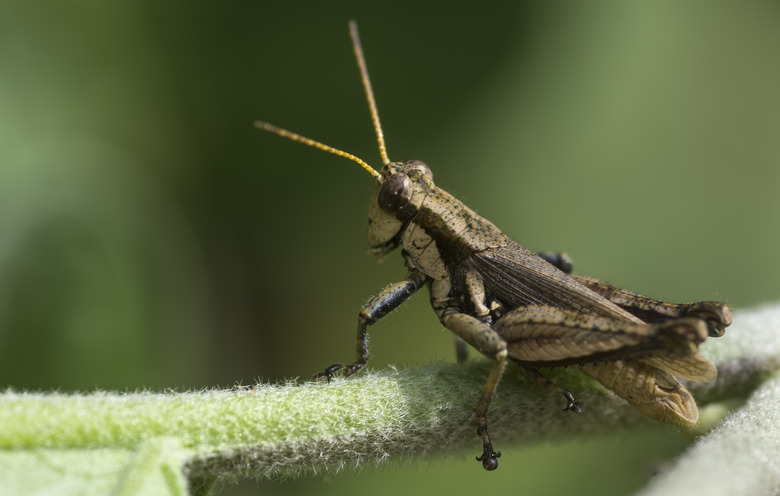How Long Do Crickets Live?
Crickets are insects with large back legs used for jumping, closely resemble grasshoppers and are related to Katydids. Crickets have long antennae that can sometimes be longer than their bodies. Most people think of crickets as black but various species come in different colors.
Types
Types
There are over 900 separate species of crickets the world over. Some of the more common ones are the field cricket, camel cricket, and house cricket. None of these crickets live more than a year, with some surviving for a considerably lesser span. The field cricket dies by winter each year while the house cricket can live for up to a year in a home where it is heated before succumbing to old age.
Time Frame
Time Frame
How can crickets survive from generation to generation if the adults die during the cold weather? The answer is that they lay their eggs in places where they can survive the winter. Field crickets lay their eggs in the soil for instance. The eggs hatch the next year, but not until late spring or early summer. The nymphs will gradually turn to adults, taking as long as 90 days. The adult crickets mate and deposit their eggs in the ground before the cold takes their life.
Features
Features
One species of cricket that the cold or rapid old age doesn't kill is the mole cricket. These crickets spend the winter deep down in the soil. Indeed, they spend most of their lives under the ground. The young nymphs turn into adults in the springtime as mating season approaches. But the adults do finally die, right after they have mated and the females have laid their eggs. After all is said and done, a mole cricket can live for as long as two years from egg to adult.
Considerations
Considerations
In many cultures a cricket is considered good luck. They are even kept as pets but they still die of old age within a year. Crickets make their chirping noises by rubbing their wings together and not their back legs. Only the male cricket can make a chirping sound in this way. They do this to repel other males or to attract females during the mating season.
Expert Insight
Expert Insight
Some species of crickets will make their way into your home, usually to escape the cold weather. This can be a problem when they start chirping, as they are easily loud enough to keep someone up at night. Crickets in the house will eat fabrics, food, and paper. One or two crickets in the house is no big deal but if they get up there in numbers they can do some damage.
Cite This Article
MLA
Lindell, John. "How Long Do Crickets Live?" sciencing.com, https://www.sciencing.com/how-long-do-crickets-live-4597194/. 13 March 2018.
APA
Lindell, John. (2018, March 13). How Long Do Crickets Live?. sciencing.com. Retrieved from https://www.sciencing.com/how-long-do-crickets-live-4597194/
Chicago
Lindell, John. How Long Do Crickets Live? last modified March 24, 2022. https://www.sciencing.com/how-long-do-crickets-live-4597194/
